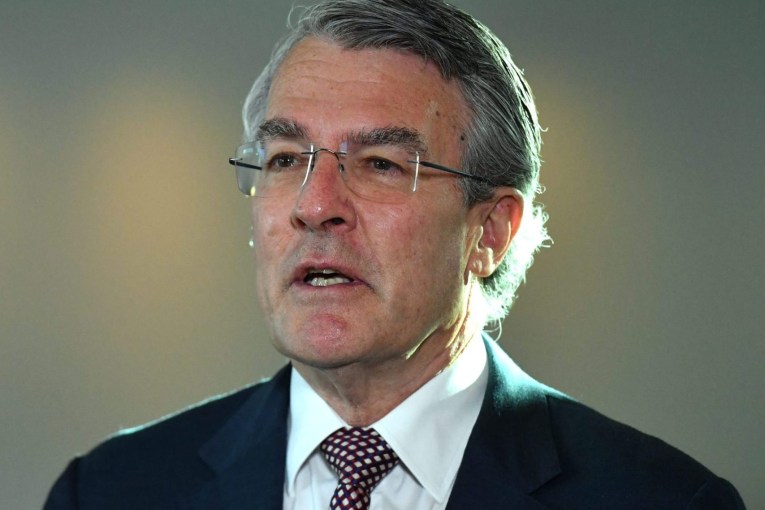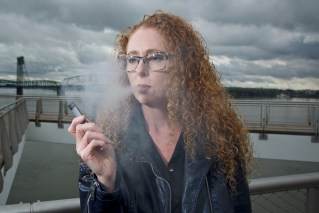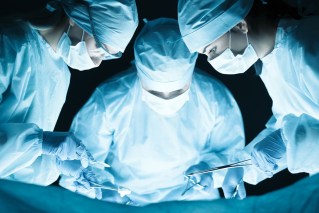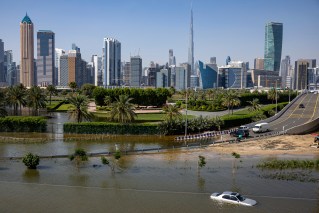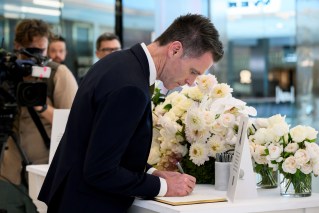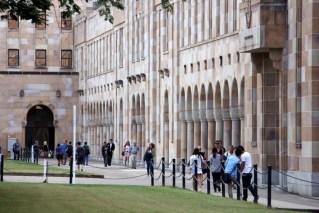Omicron overload: Experts say NSW may have 25,000 cases a day within weeks
Authorities are warning NSW could see 25,000 Covid-19 infections a day by the end of January after the state recorded 1360 new infections.
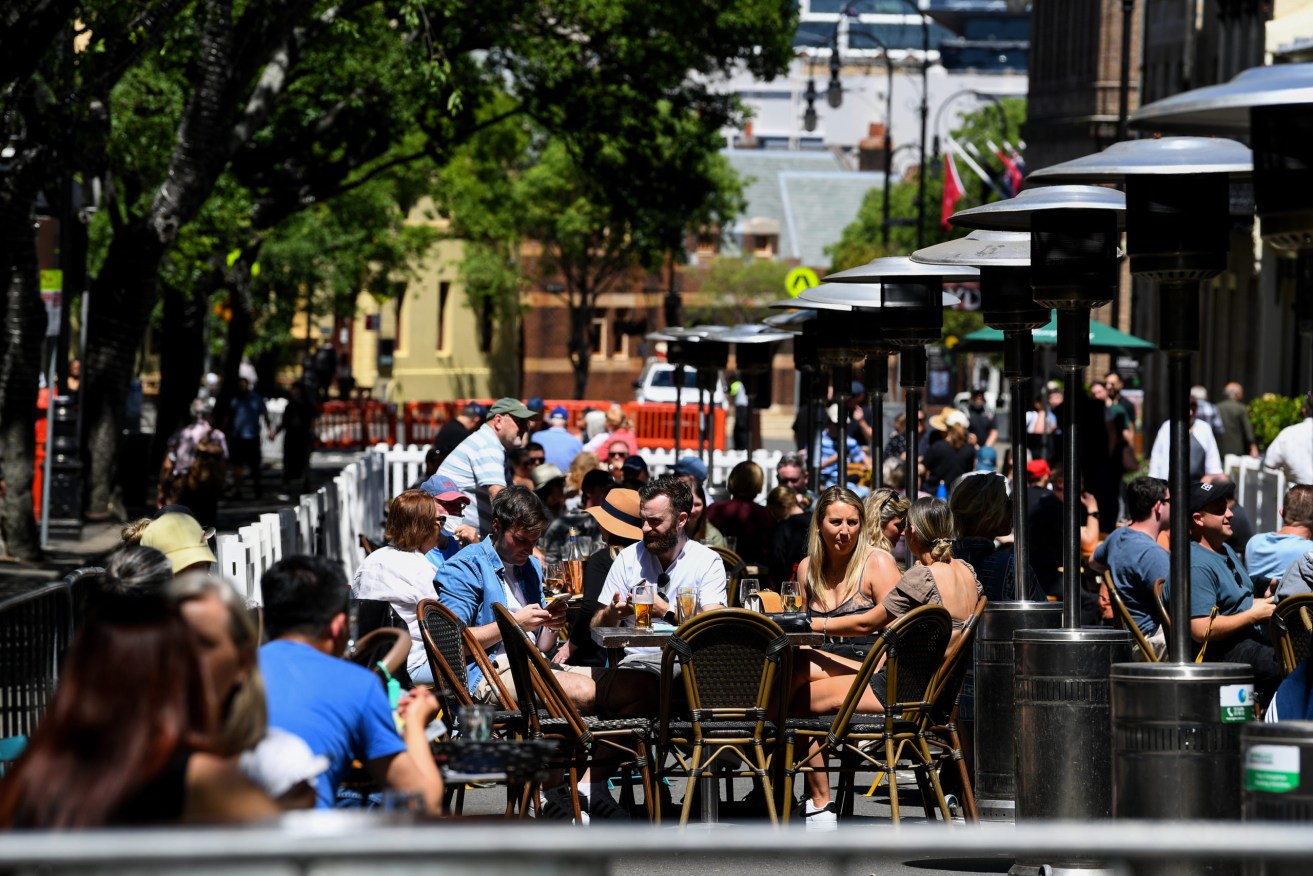
An extended outdoor dinning area of the The Mercantile Hotel, at The Rocks. Despite a spike in virus cases, NSW is clearing the way for a further easing of restrictions. (AAP Image/Bianca De Marchi)
As families spread across states prepare to reunited for Christmas and restrictions for unvaccinated residents outside of Queensland ease, the daily tally of Covid-19 infections in NSW has jumped by more than 500.
Some 1360 new cases were detected in the 24 hours to 8pm on Tuesday, an increase of 556 on the 804 the previous day.
NSW Chief Health Officer Kerry Chant said health authorities believe the uptick is being driven by the Omicron variant, with 110 cases confirmed.
Infections have more than quadrupled in a week, and it is the first time in months the state has recorded more than one thousand new cases in a single day.
Health Minister Brad Hazzard said cases were bound to surge further, with experts warning the reproduction rate of the variant could climb above 1.5.
“What they’re telling us is that by the end of January, we could be looking at 25,000 cases of the virus every single day,” he said.
Queensland has 50 active virus cases, but none of them are either seriously ill or in intensive care.
Queensland’s Chief Health Officer John Gerrard said the infectiousness of Omicron made it likely that cases would peak soon.
“Most of us now believe that the speed with which we will reach a peak is probably faster than we originally anticipated. I think it’s probably we’re talking more in the weeks than the months,” he said.
However, Dr Gerrard said it wasn’t practical to tighten the current travel restrictions on domestic travellers, such as shortening PCR test windows.
He said the virus was already in the state and the settings were effectively managing virus “spot fires”.
“It’s just not practical, I mean, as time goes forward, we have to have some degree of risk appetite,” he said.
“We can’t just completely lock down and eliminate all risk – that’s no longer possible. And realistically we expect that this virus will spread in the next few, probably weeks, even just a few months.
“What we know is if we reduce the number of seeding events or spot fires, if we keep those down the rate of which it climbs will reduce, and that’s important, very important, because it reduces the load on hospitals.”
While it seems the new variant is more transmissible but results in less severe illness, Mr Hazzard said the projected NSW numbers number should compel his state’s residents to get their vaccine boosters as soon as they are eligible.
Hazzard begged those who aren’t vaccinated at all to have “a rethink”.
The last time NSW’s daily infection caseload was higher was on September 11, when 1599 new cases were detected.
But the number of hospitalisations and deaths in NSW are a fraction of what they were then.
There was one death on Tuesday – a fully vaccinated woman in her 90s who caught her infection at an aged care facility in southwest Sydney.
Meanwhile, 166 people are in hospital, with 24 in intensive care and seven on ventilation.
More than 93 per cent of NSW’s population is fully vaccinated.
Hospitalisation increases generally lag infection spikes, but Premier Dominic Perrottet is sure the hospital system will cope.
“I have complete confidence in our health system, and complete confidence in the people of our great state to keep our people safe during this next journey of the pandemic,” he told reporters.
Prime Minister Scott Morrison campaigned in Queensland after being classified as a casual contact from a Sydney event on Friday.
He did not need to isolate and was cleared to host a dinner with visiting South Korean President Moon Jae-in at Kirribilli House on Tuesday before jetting off to Brisbane.
Mr Morrison has so far returned two negative tests and is required to undergo a third.
“I’m one of the most tested-for-COVID prime ministers anywhere in the world and probably the most quarantined as well,” he told reporters in Brisbane.
“Before we came up here today, we ensured we were fully compliant with the Queensland rules.”
The Hunter region is the biggest headache for authorities, with the region accounting for about one-third of the state’s new cases on Tuesday, with 424 infections. The explosion in cases stems from super-spreader events in Newcastle.
Among them is an outbreak at the Argyle House nightclub on December 8, with more than 200 out of 680 revellers since testing positive.
“It is likely that the overwhelming majority of the cases in Newcastle will be the Omicron variant of concern,” NSW Health said.
Unvaccinated people in NSW are from Wednesday subject to the same restrictions as those who have been fully jabbed, for the first time in three months.
The easing of restrictions went ahead despite the spike in cases.
QR code check-ins have been scaled back and masks are only required in high-risk settings such as public transport.
There is no longer a cap on visitors in homes, hospitality venues, or on numbers at outdoor gatherings.
Victoria and the ACT are also lifting restrictions or unvaccinated people.
Meanwhile, NSW Health said fully vaccinated arrivals from eight southern African countries of concern where the Omicron variant emerged will no longer have to enter 14 days’ hotel quarantine, bringing all international arrivals under the same measures.
All fully vaccinated international arrivals must self-isolate for 72 hours, have a negative result within the first 24 hours of arrival and avoid high-risk settings for one week.
